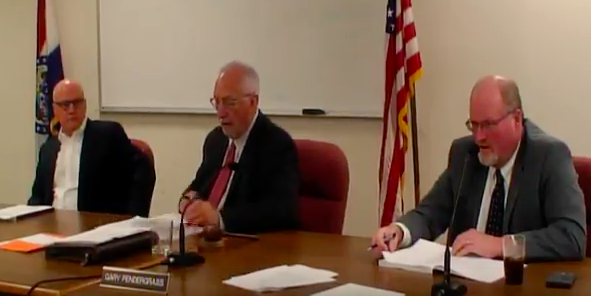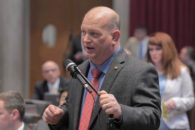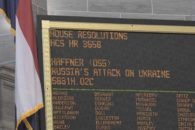JEFFERSON CITY, Mo. — The Missouri Air Conservation Commission is looking at rescinding nine out-of-date and obsolete rules. In a public hearing on March 29, 2018, several individuals testified, under oath, that the proposed regulation rescissions are no longer needed in the Show-Me State.
MACC, which administers Missouri Air Conservation Law, consists of seven members who serve four-year terms and are appointed by the governor. Gary Pendergrass serves as chairman with Jack Jones as vice-chair. Mark Garnett and Kevin Rosenbohm are also on the commission. Currently, three seats are vacant.
10 CSR 10-2.310 restricts emissions of volatile organic compounds from the application of automotive underbody deadeners.
“This rule is obsolete because there is no longer any source subject to this regulation,” Shelly Reimer, an environmental specialist for the Air Pollution Control Program, testified. The single subject to this rule ceased operation in 1998.
Reimer also testified that 10 CSR 10-2.360, which restricts the emission of volatile organic compounds from bakery ovens at large commercial bakeries, and 10 CSR 10-3.160, which established the maximum allowable rate of total fluoride emissions from any diammonium phosphate fertilizer production facility in the outstate Missouri area, are obsolete.
The Clean Air Act requirements and other state air regulations renders 10 CSR 10-5.120, which provides that information pertaining to the sale of coal or residual fuel oil shall be maintained and provided upon request, and 10 CSR 10-5.130, which provides that specified coals shall be cleaned by washing prior to their sale or use, obsolete, according to Reimer.
10 CSR 10-5.450, which limits the volatile organic compound content of traffic coatings, is duplicated in federal regulation, according to testimony. Volatile organic compounds are precursors to ozone, which pose health and environmental concerns, which is why the same standard was set on a federal level in 1998.
“Since it is a national rule, we are confident that any paving contractor we have can’t buy non-compliant coating anymore,” said David Shanks, who works for the Boeing Company in St. Louis. “Elimination of the rule will unclutter our Title V permit.”
A rule that was never approved into Missouri’s state implementation is 10 CSR 10-6.100, which allows installations in ozone nonattainment areas to propose alternate means of achieving reductions of volatile organic compounds emissions to those prescribed in rules establishing volatile organic compounds limits. The process for using alternate means is lengthy and complicated, according to Seanmichael Stanley with the Department of Natural Resources.
Since there are other approved regulations that cover this without requiring state and federal approval, the Department is proposing to rescind the obsolete air rule, Stanley testified.
Aaron Basham, with the Air Pollution Control Program, offered testimony on two out-of-date and obsolete rules. 10 CSR 10-6.350, reducing the emissions of nitrogen oxides (NOx) and establish a NOx 147 emissions trading program for the state of Missouri, and 10 CSR 10-6.360, reducing emissions of oxides of nitrogen (NOx) to ensure compliance with the federal NOx control plan to reduce the transport of air pollutants and established an emission budget for large electric generating units and non-electric generating boilers, both sunset in 2009.
The Cross State Air Pollution Rule also superseded both rules, Basham said.
People are able to submit states on the proposed rescission until 5 p.m. on April 5, 2018. Comments can be sent via the proposed rules web page www.dnr.mo.gov/proposed-rules, emailed to apcprulespn@dnr.mo.gov, or written to Chief, Air Quality Planning Section, Missouri Department of Natural Resources.

Alisha Shurr was a reporter for The Missouri Times and The Missouri Times Magazine. She joined The Missouri Times in January 2018 after working as a copy editor for her hometown newspaper in Southern Oregon. Alisha is a graduate of Kansas State University.








